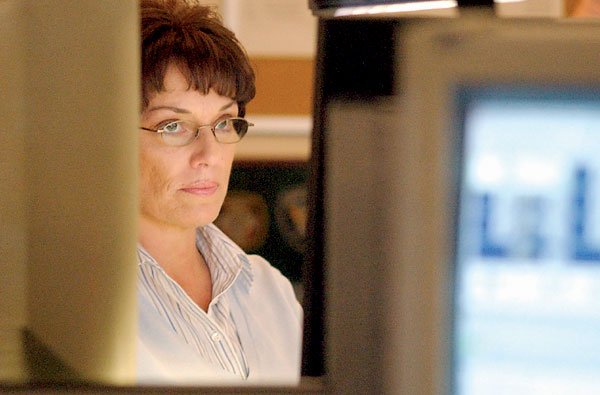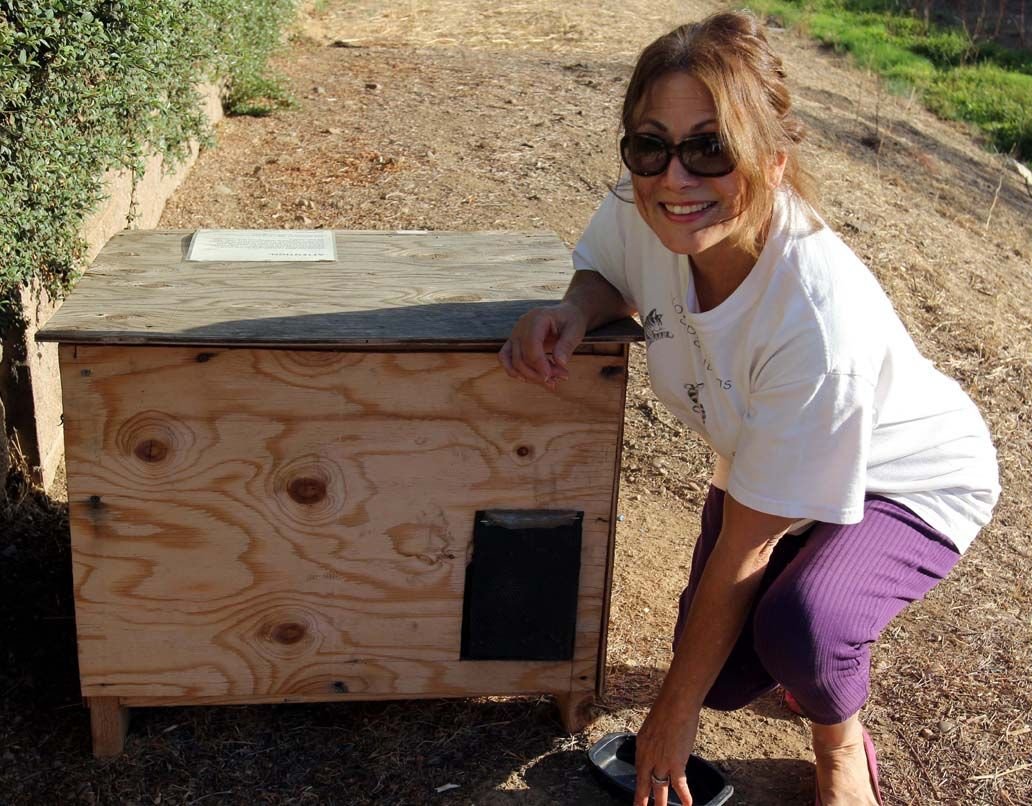They’re the first line of response in a crisis, trained to take
over a situation with nothing more than their voices. They field
thousands of calls per year, ranging from local crazies or silly
questions to suicides, murders and horrific accidents.
They’re the first line of response in a crisis, trained to take over a situation with nothing more than their voices. They field thousands of calls per year, ranging from local crazies or silly questions to suicides, murders and horrific accidents.
Police and fire dispatchers may not actually go to the crime scene, but the lack of closure they’re provided can be worse. Nationwide dispatcher stress levels are on par with, if not in excess of, those of officers in the field, a stress level that’s among the highest of all professions.
The worst call Paula Rodriguez, a Morgan Hill dispatcher, recalls taking was an event that touched the entire community. In 1986, a 3-year-old boy was mauled to death by a pitbull kept by a renter on his parents’ property.
“It was the mother (on the phone) and she was screaming so hysterically,” said Rodriguez. “You can’t let the excitement of that person take over your ability to control the situation. You have to hide your emotion. It was one of those calls where when you went to bed, it replayed over and over. It didn’t go away, even when it was over.”
Several firefighters who responded to the scene never came back to work. No counselors were sent to speak with the dispatch team.
“People had a feeling that it was okay for the dispatchers because they didn’t actually see it,” said Rodriguez. “Even though dispatchers aren’t there to physically see it, they become involved in the situation.”
Dispatchers in a busy organization move from one crisis to the next, often unaware of how an event actually played out.
“A lot of times we don’t have a chance to find out how something ended,” said JoAnna Martin Del Campo, a dispatcher for San Benito County Communications. Their
office handles all police, fire and medical aid dispatching for the county. “New stuff comes up and you’re on another call. You could ask about it, but something else comes along that you have to deal with.”
This lack of closure leads to a stoicism, a hardening that outsiders often don’t understand. In many agencies, divorce from spouses outside the life is common. For singles, marriage within the department is nearly unavoidable.
“We’re here 90 percent of our day,” said Martin Del Campo, who is married to a fireman.
Communications manager Tamara Becker is also married to the life … her husband is a sheriff’s deputy. “The officers, the firemen, the medics … they socialize together quite a bit,” said Becker.
Not surprisingly, dispatchers list taking the call of an officer killed in the line of duty as the most difficult to deal with.
“It happened to me in ’92,” said Mike Fox, a dispatch supervisor for the San Bernardino Police Department in southern California. Fox has studied the stress levels of his colleagues and written articles on the subject. “We didn’t know where he was at and we had people running around looking for him. That one was with me for a long time after it was over. I was having nightmares about it for probably a year and a half, just over and over.”
The idea is especially disconcerting in smaller towns like those of the South Valley. “We still are a city where everybody knows everybody else and their families,” said Steve Ynzunza. “The locker rooms are across the hall from dispatch, so the officers will stop in and say hi.”
Fox conducted a nationwide study of 3,000 dispatchers for Dispatch Monthly in 2003. The results found evidence of extremely high stress and anxiety.
Complaints of headaches, stomach problems and heart palpitations are commonplace. A surprisingly low number of dispatchers (30 percent) self-medicate with alcohol or prescription drugs, but 77 percent overate to feel better. And 81 percent of respondents said they occasionally or regularly had problems sleeping at night.
A strong indicator of anxiety, sleep is also a barometer for mental health. Just 21 percent of the average population reports similar sleeping problems.
Dispatchers are encouraged to get regular exercise, drink less caffeine, and eat more healthfully in general, but practicality limits their lifestyle options. Many are parents with young children – this is generally a job for younger people because of the heavy multi-tasking required – and time is a valuable commodity in short supply.
“We work 12 hour shifts, so when is there time for any of that?” said Martin Del Campo. “Here we get rid of stress because we all have a good sense of humor.”
“We lost an employee because of it,” said Jim Stephens, a senior dispatcher at the Gilroy Police Department. “It was her first day and we’d had a bad incident – a crib death. It was awful, but things go on. It’s like, ‘What’s for lunch?’ We let her go home for lunch and she didn’t come back.”
Thankfully, in times of crisis, things have changed a great deal for most dispatchers. Northern California police agencies pioneered the counseling structure that is in place in a number of departments nationwide today that often includes everyone with a stake in the call.
After a major incident a Crisis Intervention Stress Debriefing team is called in to speak with an assembled mass of officers, medical personnel and dispatchers who have been affected. The closure of such a meeting can have a cathartic effect, allowing them to go back to another day of answering phones.
“911. What is your emergency?”














